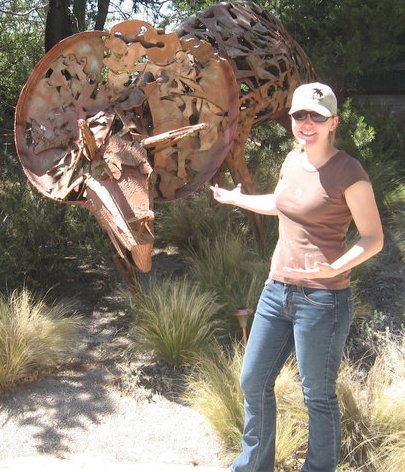As an academic, it is innevitable that at some point you are going to have to apply for research or travel money. This makes sense, it's part of your JOB, so naturally you don't want to pay out of pocket.
I've been on the College of Earth and Mineral Sciences Graduate Student Council for going on three years now. Among other tasks, we are in charge of determining who gets the Centenial Travel Grant in the college. Basically we award 3-$1000 awards to help people get to meetings to present their research. Here are some tips for writing proposals, based on my own experience.
1) If you have to write a cover letter, be as specific as possible about why you need the money and why you're most deserving without being overly technical. Chances are good that the person scoring your application is not in your field, you don't want to lose them in a sea of jargon. I'm not even allowed to score applicants from my own department, so you can bet I know next to nothing about half the stuff I read about in applications.
2) When giving a budget, itemize it. I want to know how much every little thing is going to cost, because it might actually make the difference between a feasible budget and a non-feasible budget. If your budget is in major excess of the prize amount, explain to me where the difference is going to come from. Most funding agencies ask for other sources of funding, this information should be in there anyway.
3) Make sure your CV is up to date, and I don't care what you do for fun with your cats on the weekends.
4) Make sure you ask for a letter of recommendation from someone who can write well and actually knows you. Generic letters just tell me that your adviser doesn't know squat about who you are or what you do.
5) If English isn't you first language, have someone who is proof read your application. If I can't comprehend a letter, I don't read it. I doubt I'm the only judge on the planet that does this.
6) Did I already say no jargon please? I'll say it again. No jargon, please. If you must use a technical term, you had better define what it means.
7) Don't just say your research is important or that it would be really beneficial for other people to know about what you're doing. Provide concrete details, it makes for a stronger argument.
8) Be succinct. Don't take 3/4 of a page to get to your point when your page limit is 1 page. I'll fall asleep before then, I promise.
9) Make sure you fit all the minimum criteria for the award, don't waste my time.
10) Follow instructions people, seriously. If it says your cover letter can only be one page, it can only be one page.
20 hours ago



No comments:
Post a Comment